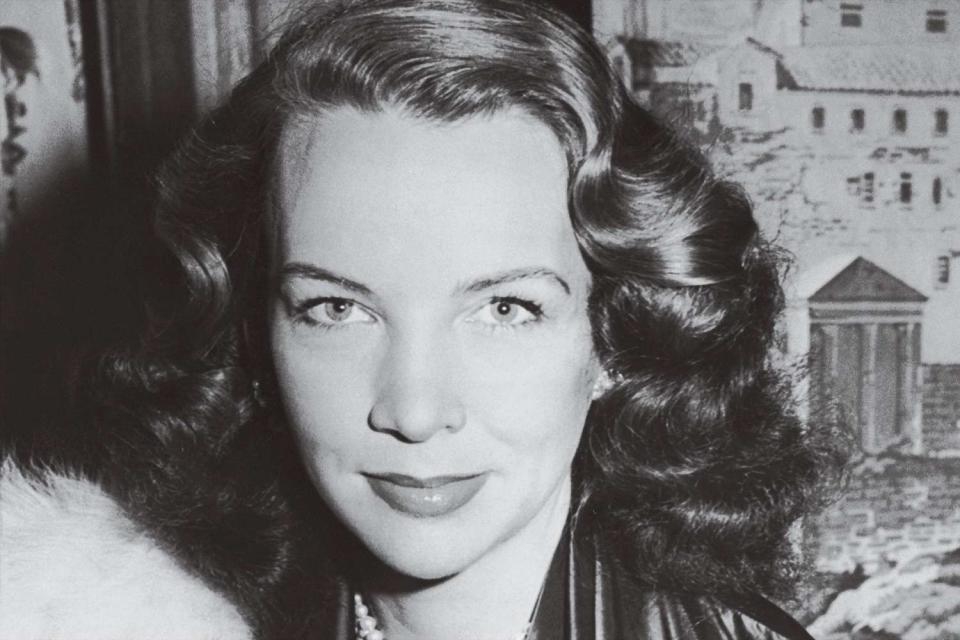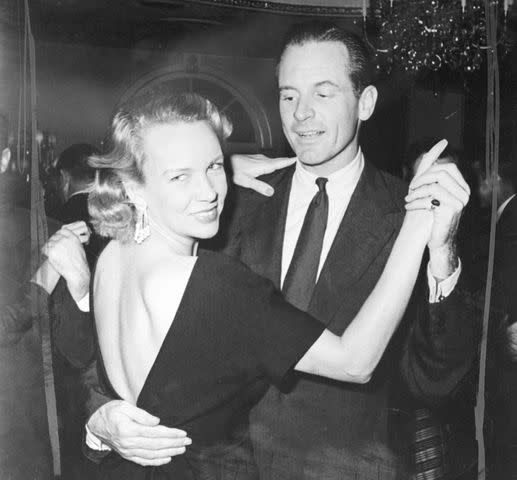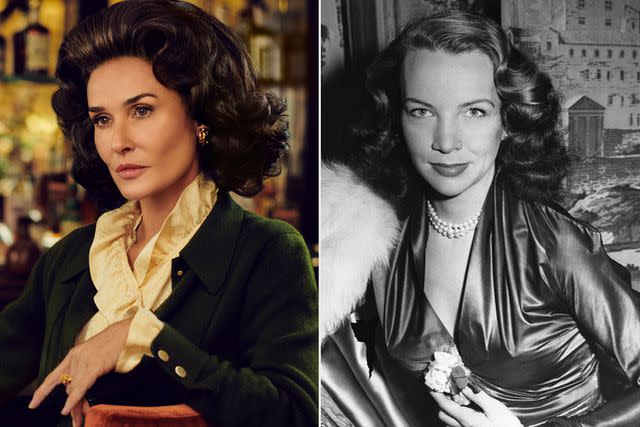“Feud”'s Real-Life Murder Mystery: Did Socialite Ann Woodward Mean to Shoot Her Husband?
- Oops!Something went wrong.Please try again later.
- Oops!Something went wrong.Please try again later.
FX's 'Feud: Capote vs. The Swans,' details what happened after author Truman Capote betrayed the socialites who trusted him with their lives

Getty
Ann WoodwardTruman Capote was the bon vivant every Manhattan socialite wanted to be around.
Being able to call the famed author of Breakfast at Tiffany's and In Cold Blood a close confidante was a mark of distinction in the most rarefied of circles. But to be among "the Swans" — the nickname Capote bestowed upon his high-society female friends — could have its downsides. Especially for socialite Ann Woodward.
The former showgirl made headlines in 1955 when she shot and killed her wealthy husband, Hanover National Bank heir William Woodward, Jr., in their Oyster Bay, N.Y., mansion.
Telling authorities she thought her husband was a burglar who had been prowling around her tony neighborhood, a grand jury ruled the shooting death accidental.
That didn't seem to matter to the society gossip mill. Whispers circulated among the New York social set that the woman some considered a gold-digger meant to murder her husband, who was rumored to be having an affair with another woman at the time.
Did she?
Related: The True Story of Feud: Capote vs. The Swans
Starting Jan. 31 on FX, the eight-part series, Feud: Capote vs. The Swans details the explosive rift that erupted when socialites’ secrets made their way into the pages of Capote’s unfinished novel, Answered Prayers, when parts of it were excerpted in Esquire magazine in 1975.
When the thinly-veiled, salacious and disparaging accounts of their lives became public, the Swans, including his close friend, Babe Paley, severed their relationship with Capote.

Getty
Ann Woodward, William Woodward Jr.Woodward, who died by suicide just before the piece came out, was the most heartbreaking casualty.
Capote took to calling her "Mrs. Bang Bang" during gossipy gatherings — and suggested in Answered Prayers that she had actually intended to kill her husband.
Related: All of the Glamorous Feud: Capote vs. The Swans Red Carpet Premiere Photos
The latest binge-worthy installment of Ryan Murphy’s FX Feud series is based on author Laurence Leamer’s bestselling 2023 book, Capote’s Women: A True Story of Love, Betrayal and a Swan Song for an Era.
Leamer tells PEOPLE: “Ann Woodward came from a poor family, came to New York. She married a rich young heir. They lived in Long Island. They had a troubled marriage. There were burglars in their area where their mansion was.
“One evening, she says she thinks it's a burglar coming and she goes out in the hallway and she shoots and kills her husband.
“Truman had the police files. It's indisputable that it was an accident. It was an accident and he knew that, but he's an author and that's what he does. He just invents things to tell a good story. So he has it in Answered Prayers that she killed him.
“It wasn't murder, but it makes a much better story if it's murder,” he says. “And that's what Truman did.”

Pari Dukovic/FX; Bettmann
Demi Moore as Ann Woodward, Ann WoodwardRumors swirled around an extramarital affair as a motive. But like others, Leamer wonders if Woodward knew what was in the withering pages of Truman’s excerpts.
“Well, she kills herself at the time Esquire comes out,” he says. “Nobody knows for sure if she did get an early copy, but it's just a strange coincidence. Here's this thing that's going to accuse her of being a murderer when she wasn't a murderer."
“The story was not yet out on the newsstands, but some people had seen it at early copies, and certainly, people were gossiping about what was in it," he says. "And the conjecture is that she found out about it and she couldn't deal with it and she killed herself.
Woodward and Capote were no longer friends at the time of her death, Leamer says, “but that's no reason to call her a murderer when she wasn't.”
For more People news, make sure to sign up for our newsletter!
Read the original article on People.

